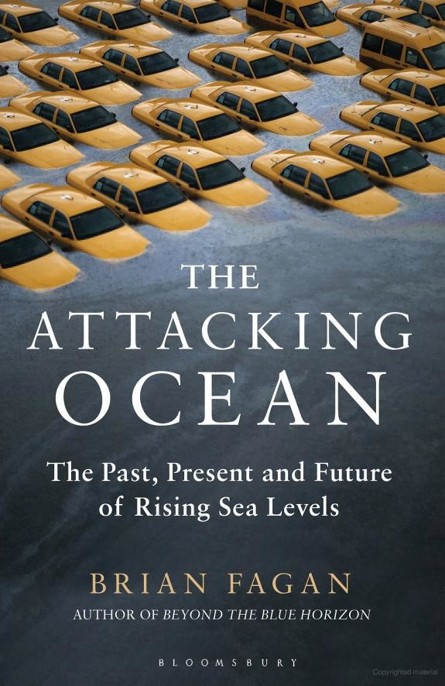
The Attacking Ocean
The Past, Present, and Future of Rising Sea Levels
کتاب های مرتبط
- اطلاعات
- نقد و بررسی
- دیدگاه کاربران
نقد و بررسی

February 18, 2013
Data pulled from a diverse base of geological studies, archaeological finds, historical documentation, and modern reporting ground this broad and accessible survey of the interaction between rising sea levels and humanity over the past 9,000 years. Fagan, an emeritus professor of anthropology at U.C. Santa Barbara, explains that since the dawn of human society, people have struggled to reconcile the ocean’s value with its destructiveness, yet he argues that the modern tendency to build dense metropolises in coastal areas leaves us “vulnerable to the ocean and its whims in ways unimaginable even one or two centuries ago,” and creates situations where one-time disasters like Hurricane Sandy and chronic issues like rising sea levels in Bangladesh lead to environmental refugee crises, “not as an abstract problem for the future, but as a sobering reality.” Alternate tables of contents allow readers to explore the material chronologically or geographically, and each chapter is both self-contained and intimately connected to the grander narrative. Fagan (Cro-Magnon) compellingly urges individuals and governments to realize that the rising sea level is an increasingly urgent problem, and the development of sustainable solutions should be at the forefront of public discourse. Unlike our less populous ancestors, we no longer have the luxury of simply moving to higher ground. Agent: Susan Rabiner, Susan Rabiner Literary Agency, Inc.

May 1, 2013
Fagan (Emeritus, Anthropology; Univ. of California, Santa Barbara; Beyond the Blue Horizon: How the Earliest Mariners Unlocked the Secrets of the Oceans, 2012, etc.) provides his assessment of rising sea levels. The author believes that man has about 50 years to change his ways and either adopt a long-term commitment to investing in the engineering skills and projects that can provide protection against the rise of the seas or relocate tens of millions of threatened people to higher ground. Fagan reviews both the long-term effect of very small annual rises and the more immediately disastrous results of tsunamis, hurricanes and typhoons. He shows how, at the end of the last Ice Age, when water levels were more than 400 feet below where they are now, a gradual rise accompanied the warming trend over more than 4,000 years. These effects, as well as his imaginative reconstructions of their consequences on the human communities of the time--e.g., Doggerland in the English Channel--provide a standpoint from which to consider the warming trend and ocean rise that began to set in again since the Industrial Revolution. Fagan draws on evidence from geology, archaeology and anthropology to support his case. The Netherlands, with their historical record of land reclamation and fortification against the seas, provides an example of the longer-term policy shift and commitment that needs to be made globally. These are multigenerational commitments that require continual upgrading, maintenance and the practical understanding that long-term physical processes are under way that won't be reversed by adopting carbon taxes and lowering fuel consumption--measures that are necessary but insufficient. The author's vision and knowledge substantiate his clearly expressed concerns.
COPYRIGHT(2013) Kirkus Reviews, ALL RIGHTS RESERVED.

January 1, 2013
Emeritus professor of anthropology at the University of California, Santa Barbara, best-selling author Fagan gives a history of surging ocean levels over the last 15,000 years. Don't we know.
Copyright 2013 Library Journal, LLC Used with permission.

























دیدگاه کاربران